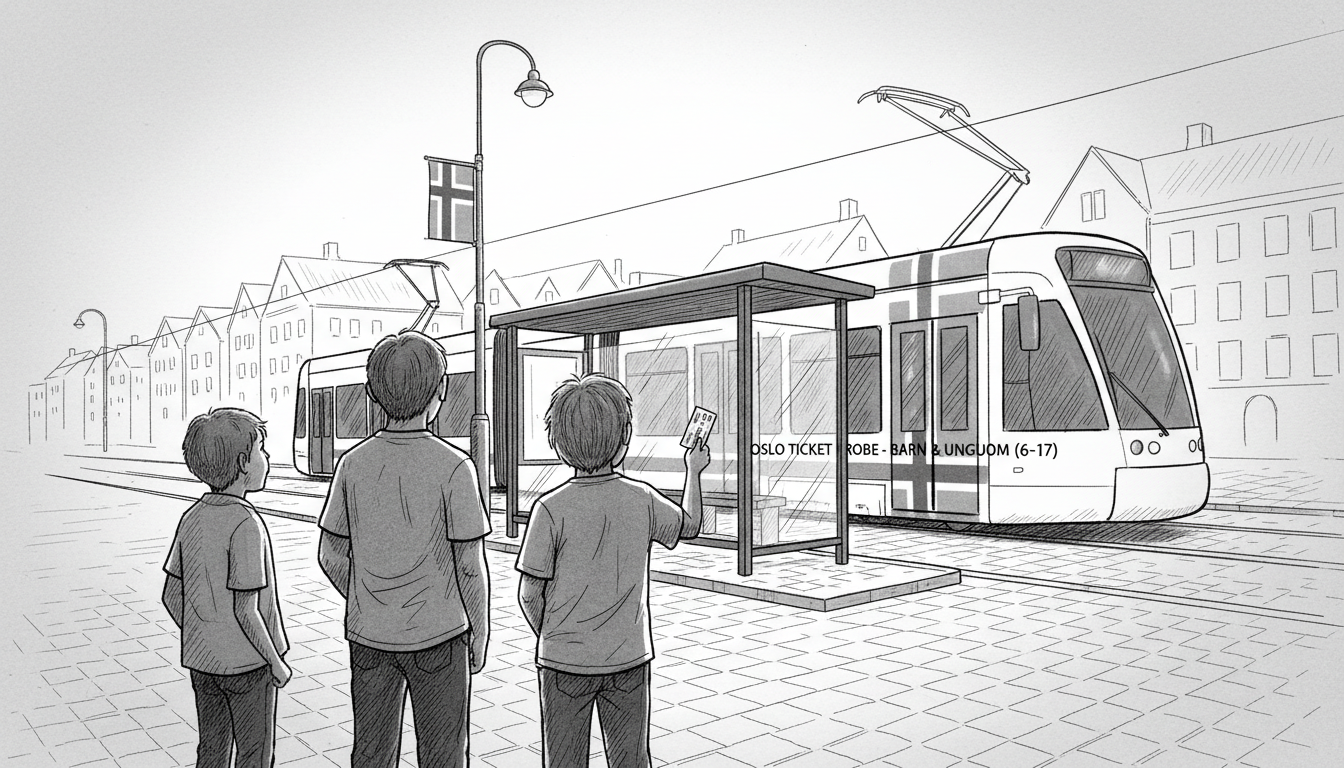Oslo's public transport authority Ruter is launching a trial of a new 90-day physical travel pass for children and young people. The pilot program will run through the summer months, offering an alternative to digital ticketing systems. This initiative specifically targets families with children who don't own smartphones, addressing a growing concern about digital exclusion in public services.
The physical ticket works with existing travel card systems and provides unlimited travel across Oslo's public transport network for three months. It's available for children and youth aged 6 through 17 years, covering the entire school-age population. Parents can purchase these tickets at convenience stores and kiosks throughout the city, maintaining the familiar physical purchase process many families prefer.
Marit Vea, Oslo's City Councilor for Environment and Transport, explained the reasoning behind the new ticket option. She stated that children should be able to function in society without smartphones. The physical ticket reduces the frequency of ticket purchases for parents while ensuring children can travel independently. This approach acknowledges that not all families want their younger children carrying expensive mobile devices.
Norway has one of Europe's highest smartphone penetration rates, yet many parents deliberately delay smartphone ownership for their children. Recent surveys show approximately 25% of Norwegian children under 12 don't own smartphones, with many parents concerned about screen time and digital privacy. The new ticket system recognizes this reality while maintaining transport accessibility.
Oslo's public transport system has been rapidly digitizing in recent years, with mobile apps becoming the primary ticketing method. This shift has created challenges for certain demographic groups, including older residents, tourists, and now children. The 90-day physical ticket represents a pragmatic compromise between technological progress and inclusive service design.
The trial period allows Ruter to assess demand and operational logistics before potentially making the ticket permanent. If successful, it could serve as a model for other Norwegian cities facing similar digital transition challenges. Public transport accessibility remains a key concern in Norwegian urban planning, with policies increasingly focused on reducing private car use and environmental impact.
International readers might find Norway's approach noteworthy given the country's reputation for technological advancement. The decision to maintain physical ticket options demonstrates careful consideration of social inclusion alongside digital innovation. This balanced approach reflects broader Nordic values that prioritize practical solutions over purely technological ones.
For expat families in Oslo, this development means easier transport management for children who may not yet have Norwegian bank accounts or digital identification required for mobile ticketing. The physical ticket simplifies the process for newcomers navigating Oslo's comprehensive public transport network.

